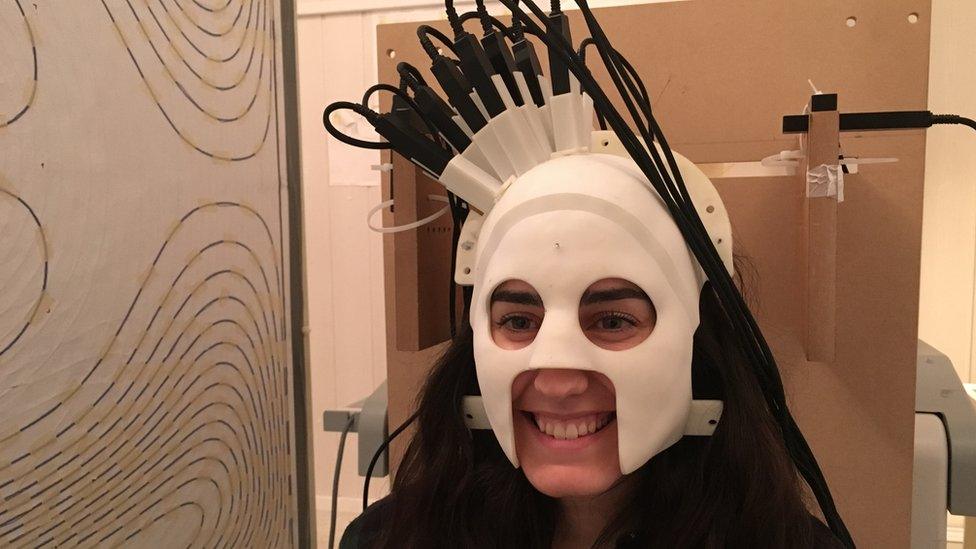Nottingham wearable brain scanner scientists recognised
- Published
The brain scanner allows patients to move
Three scientists have been recognised for their work in helping to develop a wearable brain scanner.
Elena Boto, Ryan Hill and Niall Holmes from the University of Nottingham's School of Physics and Astronomy have been awarded the Clifford Paterson Medal from the Institute of Physics.
They were honoured for the development of lightweight technology that provides images of human brain function.
The university described the work as "genuinely ground-breaking".
'Far-reaching implications'
The university said the scanner could provide images "with unprecedented accuracy", even while the patient is moving.
It uses sensors to measure magnetic fields above the scalp - a process termed magnetoencephalography (MEG).
They were able to incorporate these sensors into a scanner design that can be worn as a helmet allowing people to move freely.
It said the team had been working on the project since 2015 and that the system could be adapted for all ages, from newborns to adults.
Prof Matt Brookes, who leads MEG research at the university, said: "The work that Elena, Ryan and Niall have done is genuinely ground-breaking, with far-reaching implications for healthcare.
"Individually, they are exceptional scientists, but working together they have achieved something that is truly and uniquely special."
The awards celebrate physicists at every stage of their career.
Institute of Physics president Prof Sheila Rowan said: "On behalf of the Institute of Physics, I warmly congratulate all of this year's award winners.
"Each and every one of them has made a significant and positive impact in their profession."

Follow BBC East Midlands on Facebook, external, on Twitter, external, or on Instagram, external. Send your story ideas to eastmidsnews@bbc.co.uk, external.
Related topics
- Published20 January 2022
